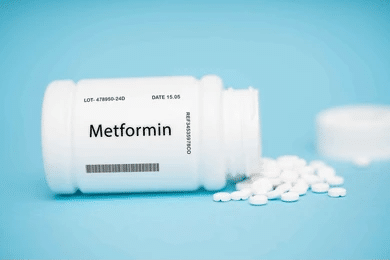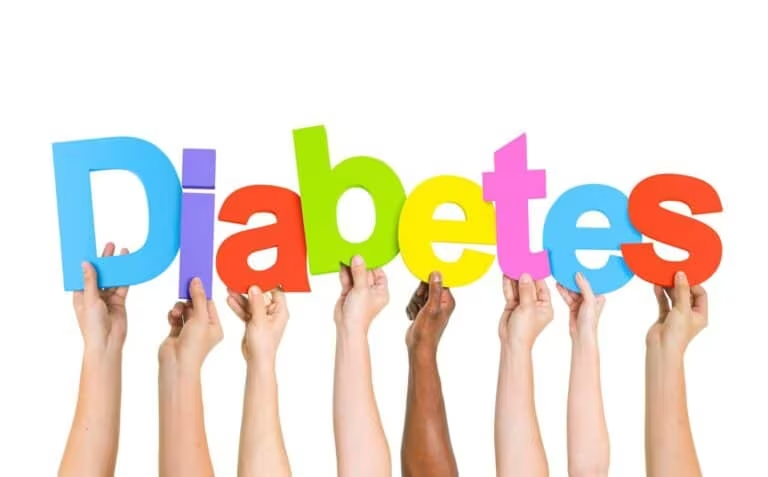Can Ozempic and Alcohol Consumption Coexist?
Many people wonder how drinking alcohol affects their diabetes management, especially when they are on medications like Ozempic. Ozempic, a medication for type 2 diabetes and weight loss, works by controlling your blood sugar levels and helping you lose weight. This article will explore the impact alcohol consumption on Ozempic users, from affecting blood glucose control to potentially lessening the medicine’s effectiveness in weight management.
Keep reading to learn how to safely enjoy alcohol while managing your health with Ozempic.
Understanding Ozempic
Turning our attention to Ozempic sheds light on its significant role in the treatment of type 2 diabetes and its support for weight management. Ozempic acts as a GLP-1 receptor agonist, a type of medication that mimics the action of an appetite-regulating hormone.
This mechanism helps control blood sugar levels by slowing down food’s journey through the digestive system while also curbing appetite, making it easier for patients to manage their weight.
Ozempic, when combined with lifestyle adjustments or other diabetes medications like metformin, significantly improves glycemic control.
Doctors prescribe this injectable medicine to be used once a week, offering convenience alongside efficacy. Notably, besides helping individuals with diabetes maintain better blood glucose levels, Ozempic reduces the risks associated with heart disease such as strokes and heart attacks.
The introduction of Wegovy in September 2023—a version specifically targeting weight loss—further highlights semaglutide’s versatility and effectiveness in addressing health challenges tied to obesity. Learn the difference between Wegovy and Ozempic here!
Alcohol and Ozempic: Key Considerations
Alcohol can interfere with blood glucose control and potentially diminish the weight loss effects of Ozempic. It may also exacerbate side effects, including the risks of pancreatitis and kidney damage, while reducing the desire to drink for some individuals.
Alcohol may interfere with blood glucose control
Drinking alcohol can make managing blood sugar levels harder for people with type 2 diabetes. This happens because the body works to remove alcohol from the blood instead of regulating blood sugar.
As a result, individuals might face hypoglycemia or low blood glucose levels, especially after heavy drinking sessions. Hypoglycemia is dangerous and can lead to seizures or loss of consciousness if not treated promptly with fast-acting carbohydrates.
Continuous heavy drinking harms the pancreas, an organ vital for insulin production and glucagon-like peptide-1 (GLP-1) activity. This damage leads to insulin resistance where the body cannot use insulin properly, causing high blood sugar levels.
Moreover, binge drinking escalates the risk of dropping into dangerously low blood glucose levels unexpectedly. Such episodes increase unawareness about hypoglycemia over time, making it tough to prevent severe drops in blood sugar that could invite complications like kidney disease and other issues related to diabetes management.
Alcohol might diminish Ozempic’s weight loss effects
Alcohol use can slow down how fast your body burns calories, leading to weight gain. This is a problem for people taking Ozempic. Ozempic works well to help lower blood sugar and manage diabetes in those with type 2 diabetes mellitus.
It does this by acting like glucagon-like peptide-1 (GLP-1), which helps the pancreas release insulin when blood sugar levels are high. But if you drink too much alcohol, it might reduce how well Ozempic works at helping you lose weight and control your blood sugar.
Regular heavy drinking is particularly harmful because it can make Ozempic less effective at keeping blood sugar levels low. Since alcohol has a lot of sugars and carbs, it can cause spikes in your blood sugar that Ozempic tries to prevent.
Also, excessive drinking may lead to behaviors that go against lifestyle changes needed for managing diabetes, such as eating a balanced diet or exercising regularly.
Excessive alcohol consumption may sabotage the health benefits offered by medications like Ozempic.
Let’s explore why mixing alcohol with drugs that fight diabetes needs careful consideration.
Potential exacerbation of Ozempic side effects
Drinking beverages with alcohol can make Ozempic side effects like feeling sick, throwing up, and stomach troubles worse. These drinks upset the stomach’s inner layer and slow down the process of the stomach emptying itself.
This slowing down increases the chances of feeling sicker and more likely to throw up. To reduce these risks, it’s best not to have alcoholic drinks late in the evening or just before going to bed.
Also, taking your Ozempic dose several hours apart from when you drink alcohol can help minimize discomfort.
Separating the time between your medication and having a drink is crucial for maintaining well-balanced blood sugar levels and avoiding additional stress on your body. Combining Ozempic with alcohol might lead to unexpected changes in how you feel, making it harder to keep diabetes complications at bay.
To stay safe, always think about how combining these two could affect your wellness journey if you’re managing conditions related to blood sugar regulation or weight control.
Risks of pancreatitis and kidney damage
Combining Ozempic with alcohol raises the risk of inflammation in the pancreas, known as pancreatitis. Elisabet Jerlhag’s research points out this danger clearly for those using GLP-1 drugs like Ozempic to cut back on drinking.
Pancreatitis can lead to severe abdominal pain and is a serious medical condition that may require prompt attention.
The interaction between alcohol and Ozempic doesn’t stop at the pancreas; it also extends to the kidneys, increasing the likelihood of kidney damage. These organs play a critical role in filtering waste from your blood and controlling blood pressure.
If they get damaged, it could lead to complications such as high blood pressure or even more severe kidney issues over time. People with existing liver problems or a history of pancreatitis should especially avoid alcohol while using Ozempic to prevent these risks.
Ozempic could reduce the desire to drink
After discussing the concerns of pancreatitis and kidney problems, it’s interesting to note how Ozempic might also impact alcohol consumption. Research shows that this medication could lower the urge to indulge in alcoholic beverages by influencing brain centers responsible for pleasure.
By reducing secretion of dopamine, a chemical tied to reward-seeking behavior, individuals may find less enjoyment from drinks they previously craved.
Clinical trials led by Christian Hendershot are exploring how semaglutide, an active ingredient in Ozempic, affects habits related to drinking and smoking. These studies build on findings that glucagon-like peptide-1 (GLP-1) treatments can help manage not just diabetes but also addictive behaviors.
Lorenzo Leggio and Alexandra G. DiFeliceantonio have highlighted the potential of GLP-1 drugs like Ozempic in curbing desires for substances by altering dopamine dynamics within the body.
This shift could mark a significant turn in treating conditions such as alcohol use disorder through pharmacological means directly targeting insulin response and glucose production pathways involved in addiction cycles.
Safe Alcohol Consumption Guidelines for Ozempic Users
Ozempic users should consult their healthcare provider to ensure safe alcohol consumption. They should also drink in moderation and monitor their body’s response to alcohol when on Ozempic.
Consult your healthcare provider
Before you decide to drink alcohol while taking Ozempic, make a point to talk with your doctor or pharmacist. They understand how the medication interacts with alcohol and can share insights on blood sugar control and glucagon-like peptide-1 receptor actions in your body.
This step ensures you receive personalized advice based on your medical history, including any risks for diabetes control, liver disease, or cardiovascular events.
Doctors often highlight the importance of watching for signs of low blood sugar or inflammation of the pancreas if you choose to consume alcoholic beverages while on this medicine.
Listening closely to a healthcare professional helps tailor safe drinking habits that won’t interfere with Ozempic’s effectiveness or put you at heightened risk for dehydration and other serious side effects.
Always consider their guidance as essential in maintaining both good health and effective diabetes management.
Drink in moderation
Drinking alcohol in moderation is key for those using Ozempic. This means men should limit themselves to no more than two drinks per day, and women should stick to one. A drink can be 12 ounces of beer, 1.5 ounces of distilled spirits, or 4 ounces of wine.
Keeping alcohol intake to 1-2 units daily and consuming it with food helps manage its effects on the body.
It’s crucial to avoid sugary drinks and cocktails as they can make blood sugar rise, which goes against Ozempic’s goal of improving blood glucose control and insulin sensitivity.
Drinking carefully ensures that the medication works effectively without unnecessary complications from high triglyceride levels or reduced glucagon-like peptide-1 receptor response.
Monitor your body’s response
After you’ve decided to drink alcohol in moderation while using Ozempic, it’s crucial to keep a close eye on how your body reacts. Alcohol can cause your blood sugar levels to swing unpredictably and might worsen potential side effects.
Noticing these changes early can help you avoid serious problems.
Pay attention if you feel unusually tired or if you start feeling faint, as these could be signs that your blood sugar is dropping too low. This condition, known as hypoglycemic unawareness, makes it hard for people to detect when their blood sugar falls dangerously low.
Repeated episodes of low blood sugar can lead to complications for diabetic patients, such as kidney disease, damage to nerves (neuropathy), and eye damage (retinopathy). Watching over these responses lets you manage risks related to both diabetes and the use of medications like Ozempic more effectively.
Conclusion
Alcohol consumption can impact the effectiveness of Ozempic for individuals managing type 2 diabetes. It may interfere with blood sugar control and diminish the medication’s weight loss effects.
Users should consult their healthcare provider, drink in moderation, and monitor their body’s response when consuming alcohol while on Ozempic. These considerations are crucial to ensure the optimal management of diabetes and overall health in Ozempic users.







